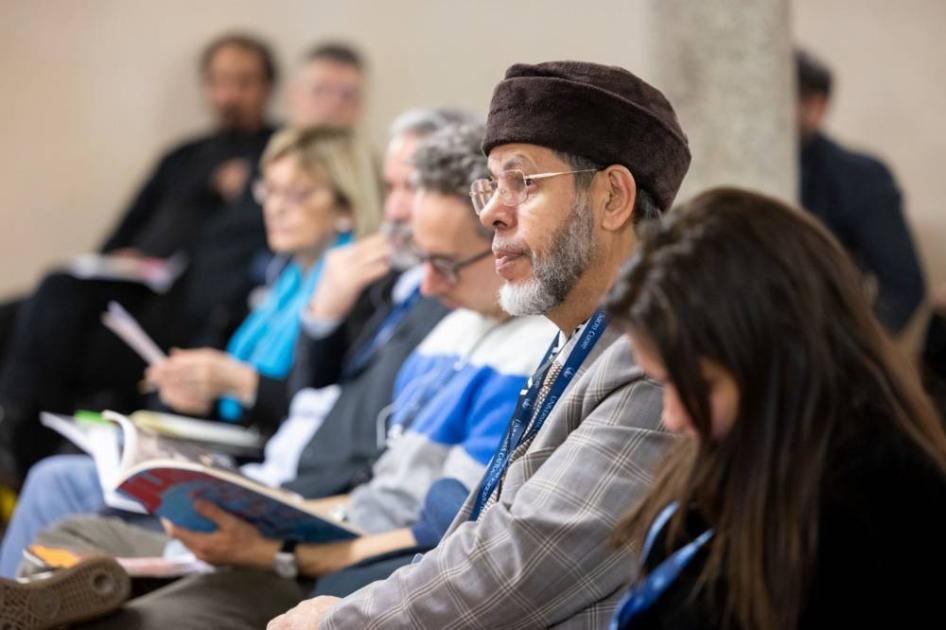The Sharjah Arabic Language Academy participated in the activities of the 7th session of the “International Festival of Arabic Language and Culture” in Milan, in the session “Efforts to Digitize the Arabic Language.” Dr. Ahmed Safi Mosteghanemi, Secretary-General of the Academy, a working paper on “The Historical Dictionary of the Arabic Language and Artificial Intelligence: The Technologies Used and the Results Achieved,” along with Dr. Walid Ghaly, from the Aga Khan University in London, whose talk dealt with “Paleophilology and the Digitization of the Humanities,” and was moderated by Maria Teresa Zanola, President of the European Council of Languages, at the Catholic University.
Dr. appreciated. Mosteghanemi gave the white hands of His Highness Sheikh Dr. Sultan bin Muhammad Al Qasimi, Member of the Supreme Council and Ruler of Sharjah, in bringing the “Historical Dictionary of the Arabic Language” project to light, praising His Highness’s unlimited efforts in serving Arabic within its geographical borders and in its global spaces, noting that the dictionary depends on An intelligent system that enhances a deeper understanding of the Arabic language and contributes to highly efficient data processing and analysis.
He stated that artificial intelligence contributes effectively to the dictionary project, as it was equipped with a smart reader that features advanced algorithms, enabling it to recognize Arabic letters with high accuracy. A smart scanner with an accuracy of up to 99.9% was also used, capable of understanding letters of all shapes and sizes, and automatically filtering optical images to ensure the quality of the output.
He added that the dictionary platform is equipped with an intelligent search system based on dynamic data, which helps in reaching accurate results in the shortest possible time, pointing out that the project’s machine learning engine focuses on data and algorithms to imitate the way humans learn and gradually improve accuracy.
Machine and linguistics
Mosteghanemi spoke in the session about the most important challenges facing language in the field of artificial intelligence. He said: “Imagination is an essential part of human thinking, and the challenge is how a machine can fill this gap. Metaphor is an inherent part of language, and it does not serve its poetic, creative, and pictorial purposes.” Literary only, but it is almost inseparable from the core of any topic, and metaphor creates in the linguistic message a factor of intended ambiguity, which there is no way to remove automatically, or convey to the recipient.
Mosteghanemi spoke about the importance of providing computers with authentic ancient linguistic data, and concluded the session by saying: “Explanation, clarification, and clarification are divine gifts to man. Because major operations take place in the mind of the speaker as he chooses among the available alternatives, speaks and formulates linguistic messages, and if we ask the machine to articulate and clarify, we have wronged it and cost it hardship, and it is sufficient for it to help us in collecting and storing the material and improving and accelerating its presentation.
